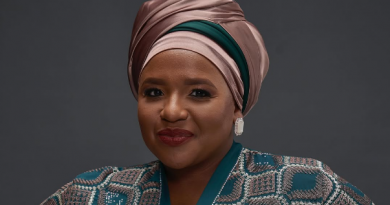South African Whistleblowers Face Threats of Retaliation and Violence
The long-standing history of misconduct in South Africa traces back to Willem Adriaan van der Stel, who operated a corrupt trading monopoly from the time he was the second Governor of the Cape Dutch Colony, serving from 1699 until his ousting in 1707.
Whistleblowers have been instrumental in exposing these corruption cases.
Listen/read:
Jeff Wicks discusses how syndicates drained billions from Tembisa Hospital
Whistleblower murders underscore the state’s failure to deliver justice
Assassinations emerge as a tactic for dispute resolution
While public whistleblowing was rare during apartheid (1948-1994), the transition to democracy saw a surge in reporting misconduct, primarily due to a new constitution designed to protect all citizens and legislation that strengthens their rights.
One such law is the Protected Disclosures Act No 26 of 2000, which was later amended by the Protected Disclosures Amendment Act No 5 of 2017.
This act was enacted to safeguard individuals who report suspected misconduct to an authority capable of addressing the issue.
Nonetheless, the act has fallen short in providing adequate protection. Whistleblowers in South Africa often face extreme reprisals, from murder to various forms of social, workplace, and legal backlash.
Our research focuses on exploring the experiences of whistleblowers in South Africa and interpreting their challenges.
In a recently published paper, we recount the stories of several whistleblowers spanning five decades, highlighting key cases that have established important precedents in South Africa.
These narratives shed light on the harsh realities faced by whistleblowers in the country. Notably, their commitment to civic duty often places them in significant peril.
Adam Klein
Adam Klein was among the few whistleblowers to emerge during apartheid. In 1980, while serving as a prosecutor at the Bantu Commissioner’s Court, he refused to prosecute five black men under pass laws that restricted the movement of non-whites.
Klein faced immediate backlash, including wrongful arrest, threats to his safety, and constant surveillance.
Eventually, he made a public disclosure to the Sunday Times newspaper, revealing serious abuses taking place at the Pretoria Bantu Commissioner’s Court.
ADVERTISEMENT
CONTINUE READING BELOW
This exposure brought to light the brutal realities of the pass laws, including the detention of black individuals unable to provide valid passes.
Klein endured further backlash, ultimately moving to Namibia for safety. Upon returning to South Africa, he lived under continuous surveillance and interrogation. He passed away in 2011, largely unrecognized and without posthumous honor.
Andries Jacobs
Andries Jacobs, an inspector with the Gauteng Provincial Traffic Department in Benoni, became known for exposing police dogs attacking migrants.
In January 1998, Jacobs recorded six members of the North East Rand Police dog unit inciting their dogs to attack Mozambican migrants.
This disturbing footage was submitted to the Police Commissioner, the Minister for Safety and Security, and the South African Broadcasting Corporation.
Eventually, the six officers were arrested in November 2000, nearly three years after Jacobs filmed the incident. The arrest was highlighted on national television the same day.
The officers received prison sentences ranging from four to five years.
Yet, Jacobs was suspended from his position just two days following the arrests.
Upon returning, he had to spend a year in witness protection. He never resumed his previous duties due to a lack of resources and responsibilities.
Jacobs later faced termination for allegedly misusing a video camera during “police training exercises.” By 2005, his life was severely affected, beset by death threats that led to immense stress and a divorce.
Tatolo Setlai
Another notable case following the enactment of the Protected Disclosures Act in 2000 is that of Tatolo Setlai.
In 2001, the Jali Commission of Inquiry uncovered widespread corruption within South Africa’s prisons. Setlai, the head of Grootvlei Prison in Bloemfontein, permitted four inmates to secretly record officials engaged in illegal activities, including selling firearms, drugs, and alcohol, along with enabling the sexual exploitation of a minor.
ADVERTISEMENT:
CONTINUE READING BELOW
This footage was broadcasted on national television.
The Department of Correctional Services failed to adequately respond to the disclosure and instead subjected Setlai to harassment and victimization.
He faced fabricated charges and sham disciplinary proceedings.
Although Setlai was dismissed, he eventually regained his position through a challenging process in the Labour Court.
‘Stan’ and ‘John’
Much of the revelations during this time came from whistleblower disclosures.
Two anonymous whistleblowers, referred to as “Stan” and “John,” provided critical evidence supporting allegations of state capture. They delivered hard drives containing numerous emails detailing corrupt interactions involving the Gupta family, the Zuma family, ministers, and heads of state-owned enterprises. The Gupta brothers, originally from India, played a major role in facilitating state capture.
The disclosures by Stan and John became known as the Gupta Leaks.
These leaks were used as official evidence during the Zondo Commission of Inquiry into State Capture.
The identities of the two whistleblowers remain anonymous, and they have relocated abroad for their safety.
Paying with their lives
Tragically, several whistleblowers have lost their lives due to their disclosures.
ADVERTISEMENT:
CONTINUE READING BELOW
Jimmy Mohlala, the speaker of the Mbombela Municipality, was murdered outside his home after exposing tender irregularities related to the Mbombela Stadium’s construction for the 2010 FIFA World Cup. His son was injured in the attack.
Moss Phakoe, an ANC municipal councillor since 2002, was also shot in front of his home. He and a colleague had compiled a report exposing corruption in the Bojanala Platinum District Municipality, implicating the former mayor. The former mayor was later convicted of the murder, but that conviction was ultimately overturned due to several state witnesses retracting their testimony.
The murder of Babita Deokaran, the acting chief financial officer of the Gauteng Department of Health at the time of her death, attracted extensive media attention.
She had revealed significant corruption within the Department and provided evidence to the appropriate authorities. Later, she investigated fraud related to personal protective equipment procurement during the Covid pandemic.
On the brink of revealing further corruption tied to Covid, Deokaran was assassinated after dropping her child off at school. Six hitmen were arrested for her murder, but the mastermind remains unidentified.
Lessons
The alarming frequency and severity of reprisals against South African whistleblowers necessitate recognition.
Our analysis concludes that the primary issue lies in the government’s failure to acknowledge the dangers faced by whistleblowers in South Africa, exacerbated by inadequate whistleblower protection laws.
However, there are signs of intent (and some actions) aimed at enhancing (or revitalizing) South Africa’s whistleblower protection framework.
This requires the political will necessary for the proper implementation of the new laws.
Additionally, consistent governmental action is vital to hold wrongdoers accountable.
Ugljesa Radulovic, Senior Postdoctoral Research Fellow, University of Johannesburg and Tina Uys, Professor of Sociology, University of Johannesburg
This article has been republished from The Conversation under a Creative Commons license. Read the original article.




